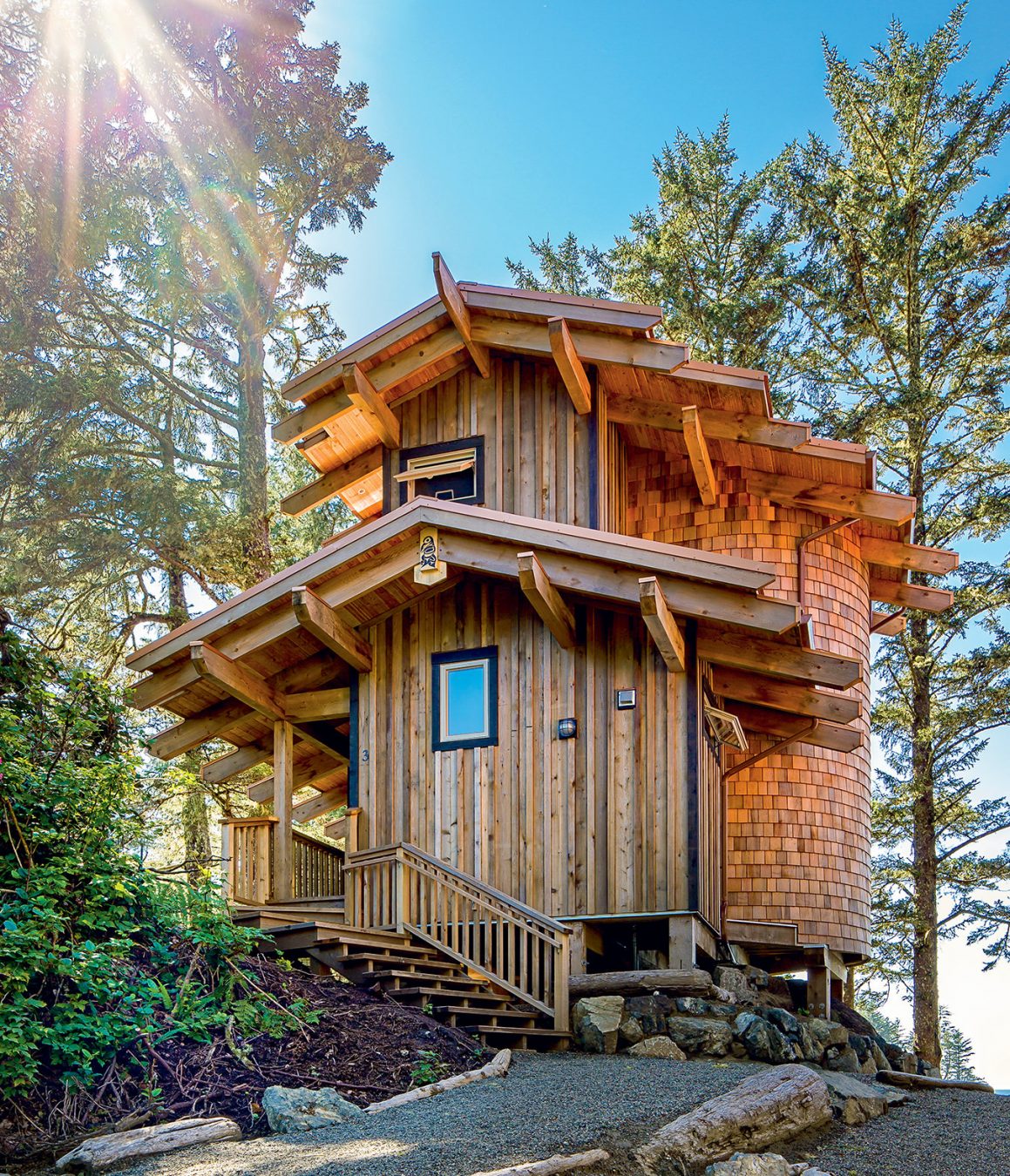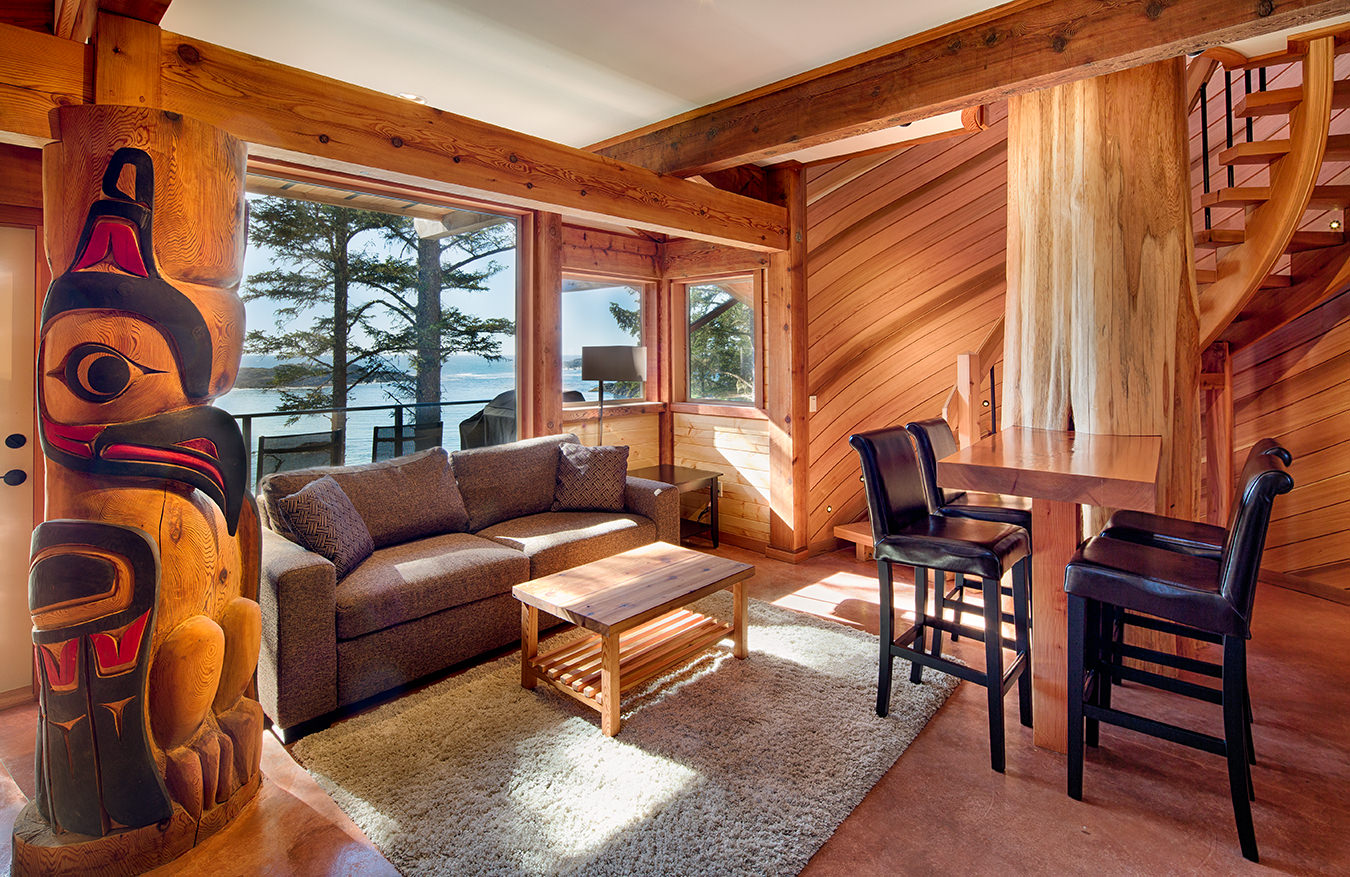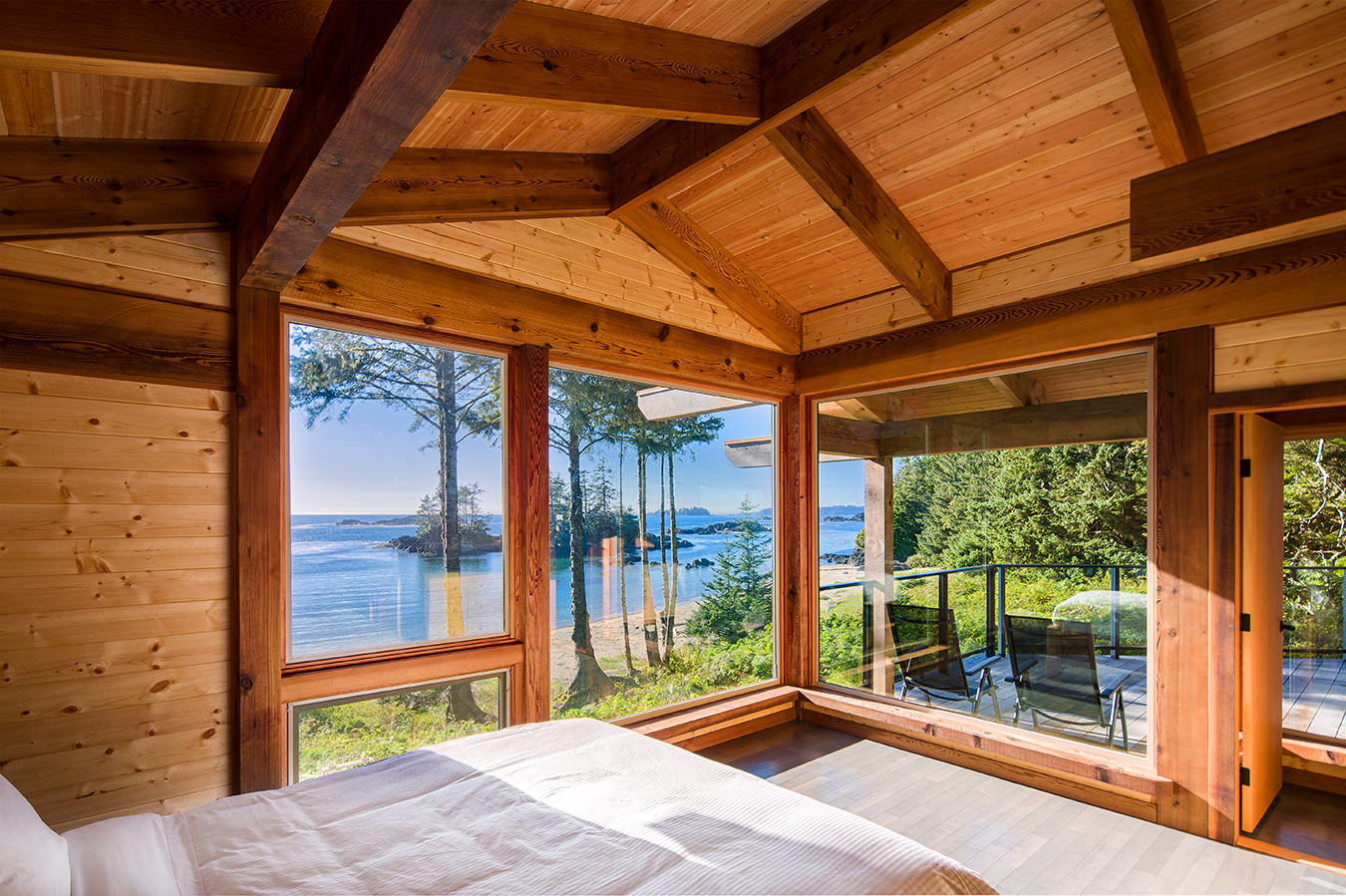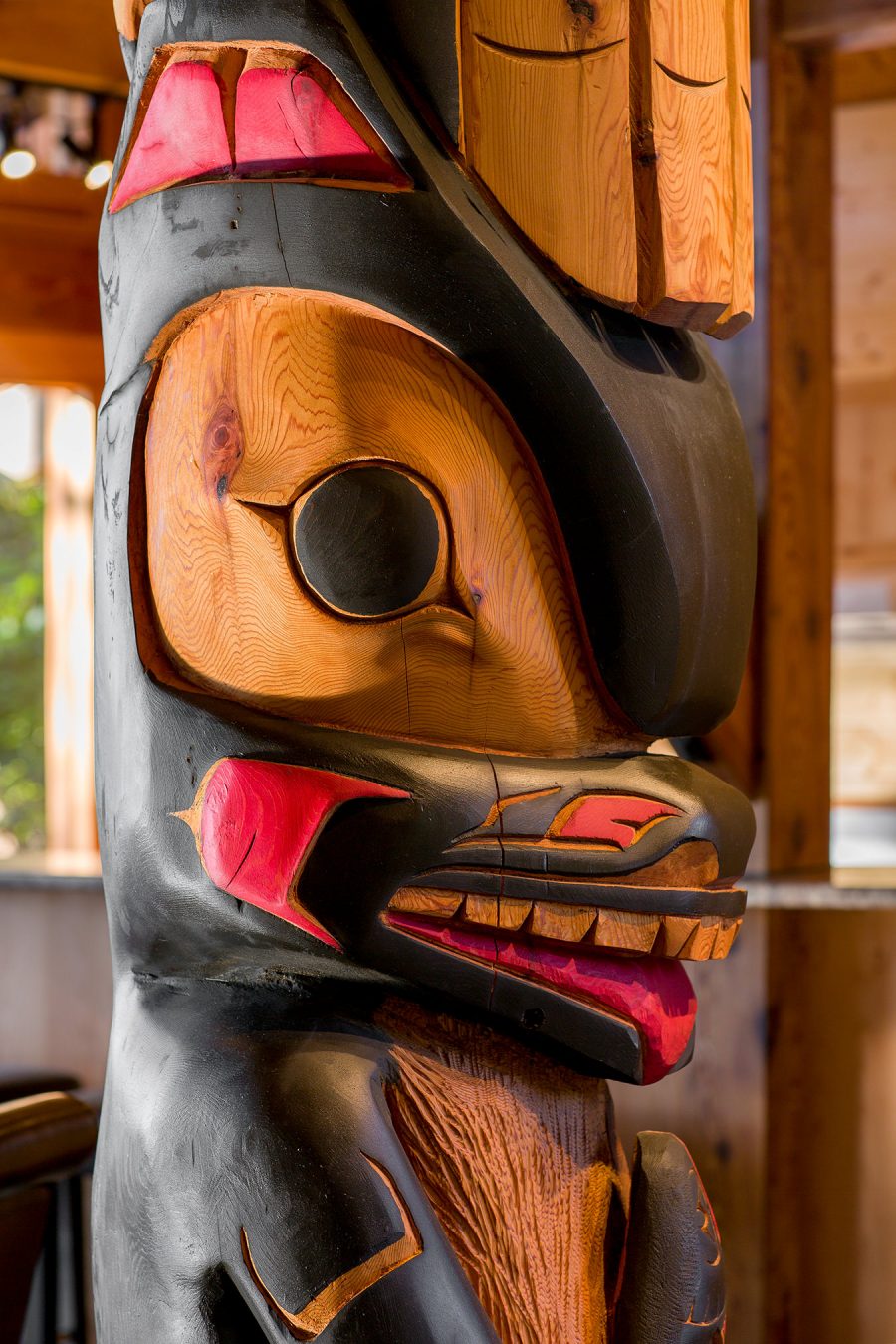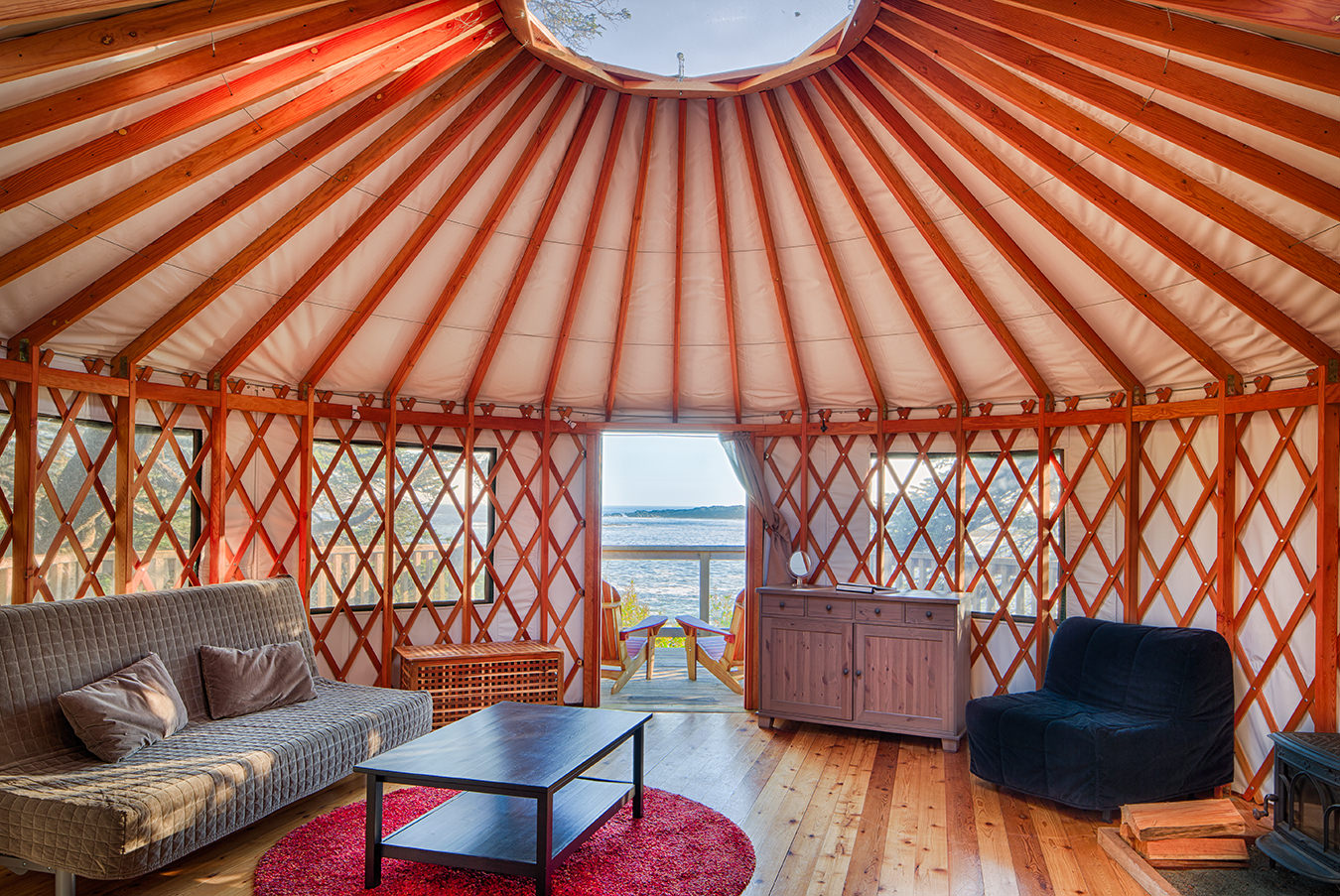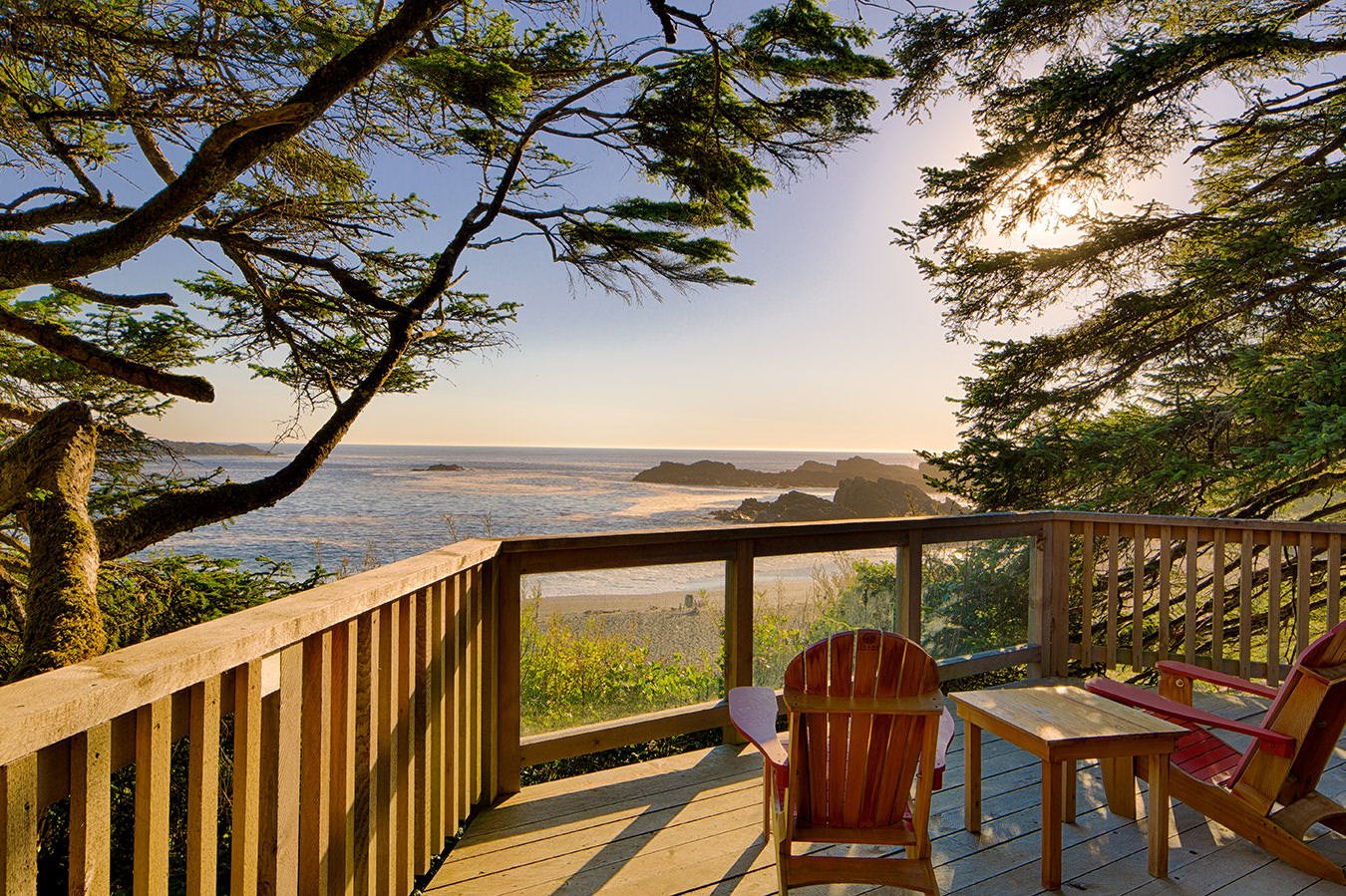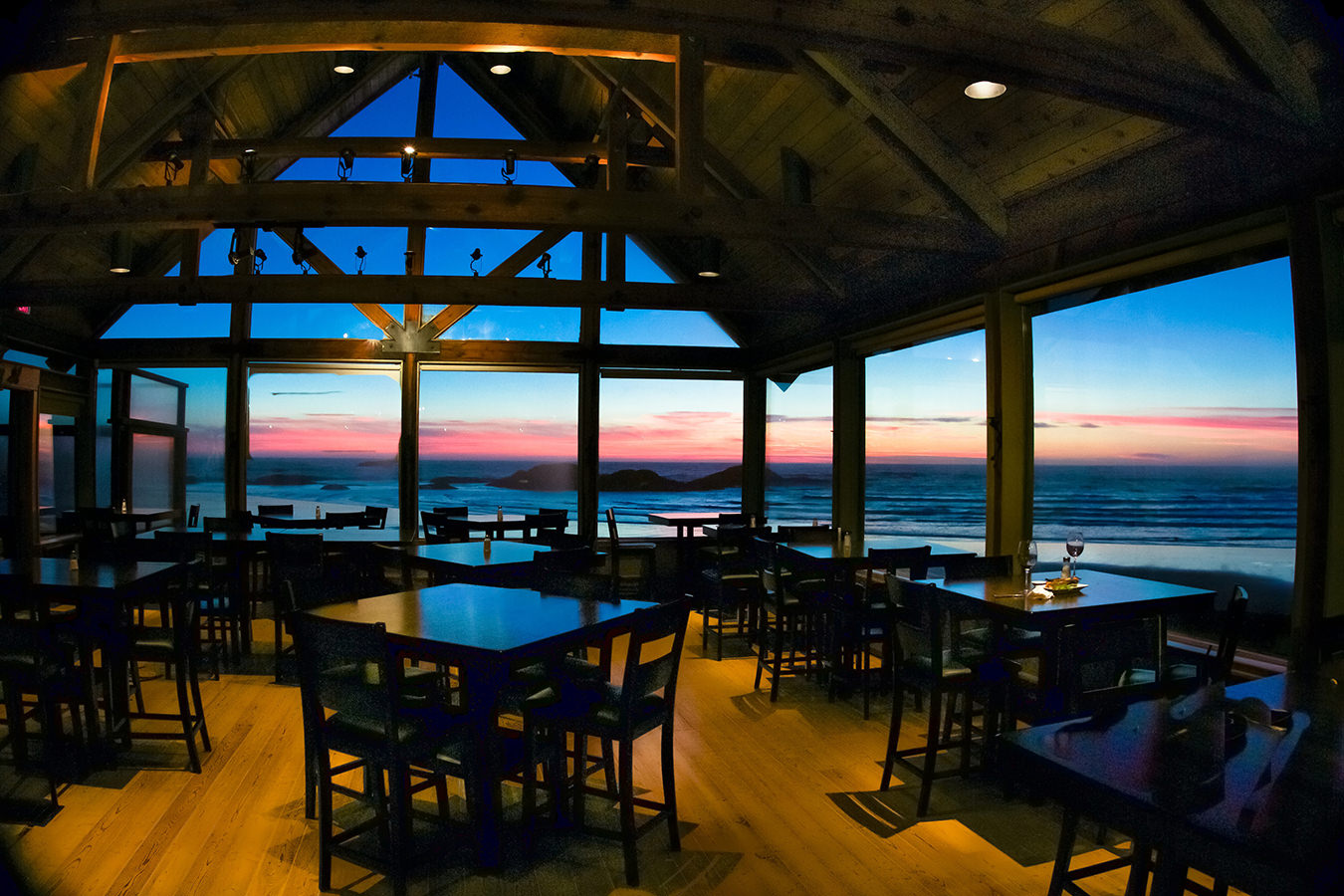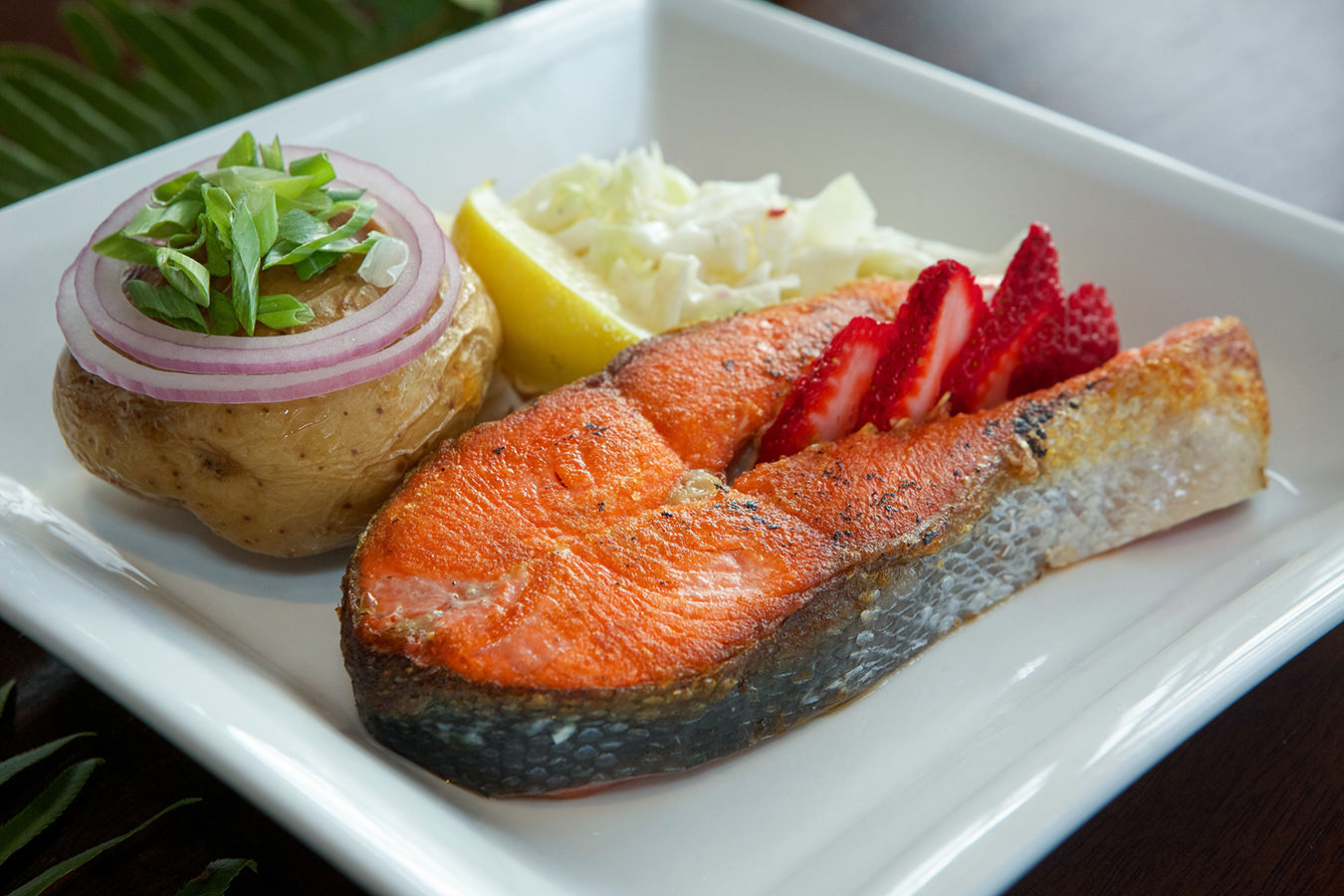“It was a dark and stormy night” is a trite way to start a story, but a thrilling way to begin a weekend in Ucluelet, B.C. Historically the villain intent on ruining a good beach vacation, inclement weather is the dashing hero of winter tourism on Vancouver Island’s west coast. A trip out here at this time of year has all the elements of a page-turner: suspense (will ferries be cancelled because of 70-kilometre winds?), twists (many of them, especially along the latter half of the Pacific Coast Highway), adventure (surfing in near-freezing waters, for one) and romance (for those willing, aided by rain for getting caught in, the sound of crashing waves, and fireplaces). Playing a formidable supporting role in this sweeping drama, is one setting in particular, the new Wya Point Resort.
While Wya Point possesses many of the qualities one expects of a resort, such as an idyllic location—in this case 600 acres shared by statuesque old growth conifers with five kilometres of photogenic beachfront—it’s no stock character. The property isn’t under the purview of Starwood or Hilton, but rather the Yuu-thlu-ilth-aht (Ucluelet) First Nation. As the Maa-nulth treaty was finally nearing ratification, which recognized their right to self government and recompensed land and resources, the band was exploring ideas for economic development. Of the propositions on the table, their membership was overwhelmingly in favour of creating a resort, one with “sustainable” as its primary qualifier.
A 20-plot campground and 20 RV sites came first three years ago. A year later, 15 yurts were added to the mix, and by March 2014, they’d completed their nine luxury lodges. The latter offer the coziest shelters from the storm. Tucked under the cover of cedars on Ucluth Beach, the lodges are raised on cement columns similar to the stilts that Yuu-tluth-aht homes were built on 50 years ago, meaning there’s minimal impact on the land. As the tribe’s economic development manager Tyson Touchie explains, “We could take these apart, the forest would soon grow over and you wouldn’t know these were ever here”. The structures fit in with the original woodland residents though; the lodges were thoughtfully built to LEED Platinum standards using locally harvested red cedar timber from Nuu-chah-nulth–owned Iisaak Forestry, (which is known for their green forestry practices) and milled onsite. That makes a guest sleep easier at night from an ideological perspective, but the corporeal comforts are well represented too—down-covered locally crafted cedar beds and enveloping sofas, as well as picture windows and private decks for watching backyard waves wrestle the shore.
Each unique and ranging in size from 650 to 2,100 square feet, the lodges are named for traditional house posts within, carved by resident artist Clifford George, representative of allegorical animals in Yuu-thlu-ilth-aht culture. One dubbed Thunderbird is built around the single old-growth tree they cut down on the property, and spun around it is a ribbon-smooth spiral stairway, the work of another local craftsperson, master shaper Wayne Vliet. Climbing up to the lofted bedroom, with a gorgeous view of the coastline, you can easily imagine that you are in the tiitzkin’s nest. That stairwell, arching up to the second floor, also curves like a perfect right aching to be surfed, and on that point Wya also provides.
Three minutes down the road near the Ucluelet-Tofino junction, their surf shop provides rentals and lessons to wannabe wave slayers. Opened coincidentally on Aboriginal Day in 2011, it’s what got the ball rolling on all the rest. Managed by Touchie’s daughter Skylene, the shop is the only one around with Yuu-thlu-ilth-aht instructors, so lessons include the mechanics, how to pop up on a board and the like, with a splash of personal histories.
On this particular day, Touchie is the teacher. Surfing since he was a teenager, the 42-year-old has that buoying mix of patience and enthusiasm, and his principal piece of advice is as broad as the foam longboards beginners get: “It’s good to be humble. That’s the first lesson I learned.” His stories include his grandfather Lawrence Jack, the hereditary chief who passed away last year, and it becomes evident he’s inherited some of his hospitable nature from him; before the resort, people would camp on the land, and Touchie recalls, “Some people were protective of the area, but he always said, ‘No, let them, as long as they clean up after themselves.’ ”
With the addition of the lodges, the resort happily assumes all the housekeeping duties, and there are plans to provide more with a boutique hotel, spa, restaurant, and conference centre in the works. The hotel, Touchie says, will be erected on a rock base over a channel with a blowhole—just another feature to add to the list of thrills best enjoyed during the throes of a storm.

